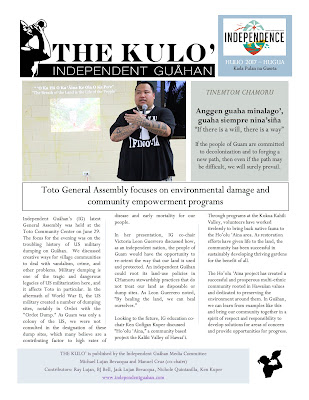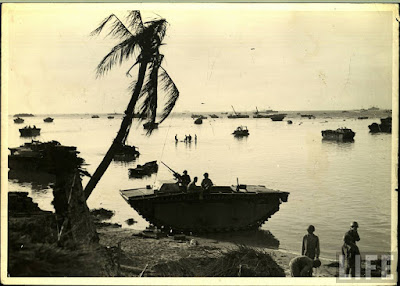Liberate Liberation from Liberation Day

The one the reasons why so many scholars, activists and often times community members feel the need to rethink or rearticulate or reimagine "Liberation Day" is because of a recognition of hope integral it is or has been to our relationship to the US. World War II changed dramatically the relationship between the Chamorus of Guam and the US. It changed it somewhat from the US perspective, but it was dramatically altered from the Chamoru side of the equation. Chamorus who felt a clear distance to their colonizer, even if some were eager to be patriotic, prior to the war, emerged from the war eager to find whatever way possible to express their loyalty, their newfound attachment to America. But as I've written many times before, what Liberation Day does as the basis for Chamoru identity in an American context, is create the Chamoru as a subordinate subject, a minor footnote, that must always be superpatriotic for fear that America will withdraw funds, support, recognition an




